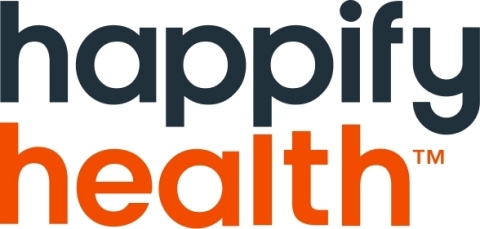NEW YORK–Today, Happify Health (www.HappifyHealth.com), a global leader in digital therapeutics for anxiety and depression, announced plans to distribute its library of digital therapeutics, including Ensemble, the first and only transdiagnostic prescription digital therapeutic engineered to treat Major Depressive Disorder (MDD) and Generalized Anxiety Disorder (GAD), through Microsoft Azure.
“We’ve accelerated our integration into Microsoft Azure to address the global mental health epidemic that is being fueled by COVID-19,” said Murray Zucker, MD, Happify Health’s Chief Medical Officer. “We’re in a mental health crisis that can only be addressed through the global distribution of personalized, clinical-grade mental health services.”
“Over the past decade, Happify has invested over $100 million to optimize the delivery of clinical-grade AI-enabled, digital therapeutics that address both mental health and chronic conditions,” said Chris Wasden, Head of Pharma Specialty Solutions and Corporate Strategy, Happify Health. “The Microsoft Azure stack will help Happify scale the global distribution of our library of prescription digital therapeutics like Ensemble, and digital therapeutics like Heart & Mind, the digital therapeutic we’ve developed with the American Heart Association.”
Tom McGuinness, Microsoft’s corporate vice president of Global Healthcare, said this tech-first approach will be the key to healthcare in the future.
“Digital therapeutics will be a driver in supporting access to clinical health care over the next decade,” McGuinness said. “We are pleased to support Happify with Microsoft Azure, with our capabilities in data analytics, privacy and security, and machine learning.”
The number of adults with anxiety or depression increased four-hundred percent in the sixteen months following the Covid-related lockdowns, according to Kaiser Family Foundation (source). The butterfly effect of these increases in anxiety and depression will be a global increase in chronic illness, including heart-disease-related deaths – people diagnosed with depression are up to five-times more likely to die within six months of having had a heart attack (source) than those without depression.
A 2018 Merritt Hawkins report found that the United States had only sixty percent (60%) of the psychiatrists needed to provide good mental health care (source), and that sixty percent (60%) of US counties had no practicing psychiatrists. An August 2020 survey conducted by the World Health Organization (WHO), 130 countries across WHO’s six regions found widespread disruption of critical mental health services, with over 60% reporting disruptions to mental health services for vulnerable people, including children and adolescents (72%), older adults (70%), and women requiring antenatal or postnatal services (61%).
The expansion of telehealth services only increases the demand for licensed practitioners that are already in short supply. The absence of a digital, clinical grade, stepped care approach to mental health makes it impossible for providers and payers to quickly assess a patient’s need and triage them into the appropriate level of mental health care.


